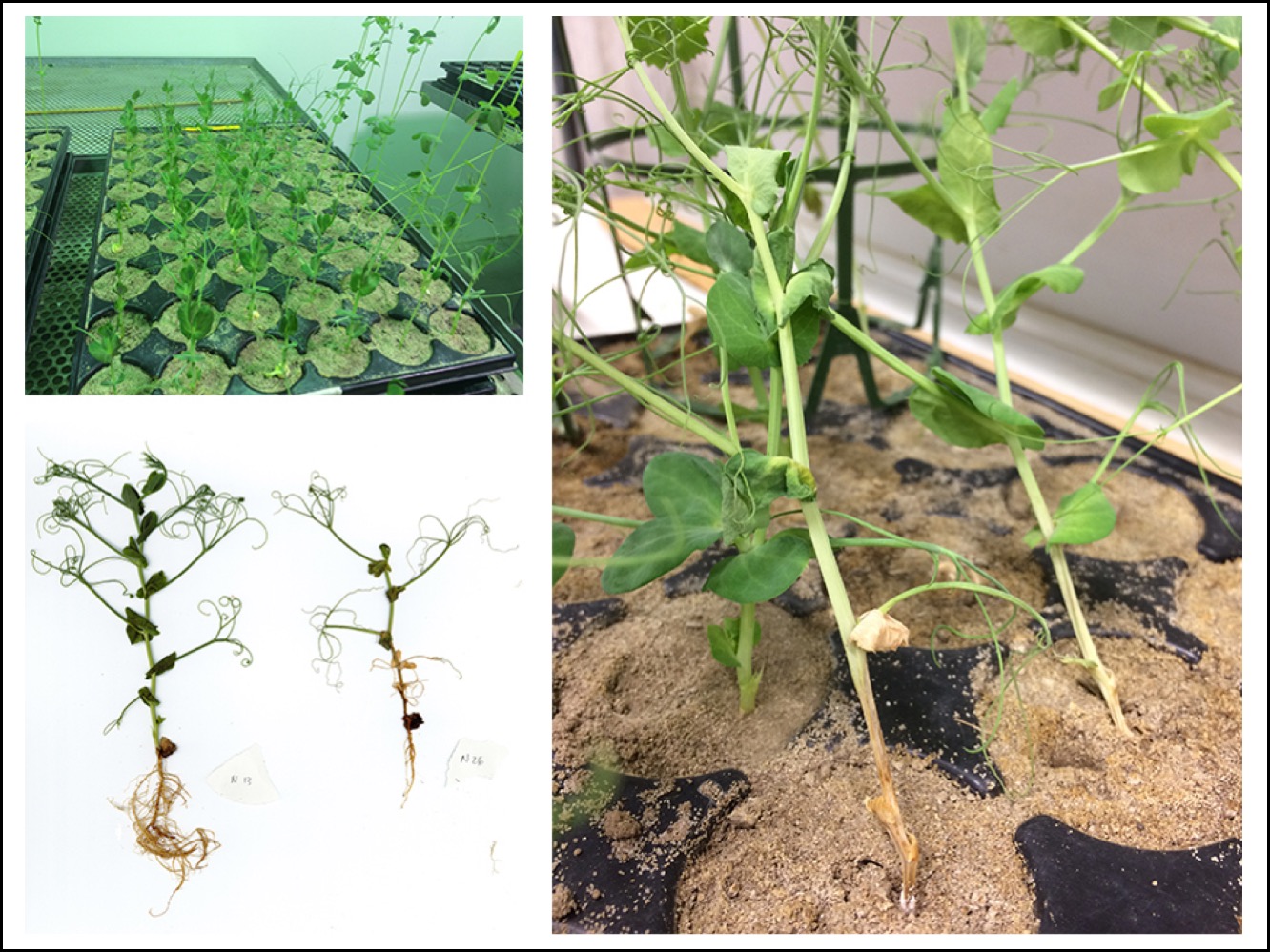Improving disease resistance of pea through selection at the plant-soil interface
Contact person: Lukas Wille
Partners: Pierre Hohmann, Monika Messmer and Bruno Studer
Project description: Pea (Pisum sativum) belongs to the legume family (Fabaceae). Legumes are able to improve soil fertility via a mutualistic symbiosis with nitrogen-fixing rhizobacteria. They represent ecologically important crops for sustainable farming systems. Besides their ecological function, grain legumes considerably contribute to the dietary protein needs of humans and livestock. Despite their importance, legume cultivation remains low due to low and unstable yields. Soil fatigue, also called legume yield depression syndrome, is caused by a complex of different soil-borne pathogens and is thought to be the main reason for these yield losses, especially in pea (Fig. 1).
The overall goal of this project is to improve the resistance of pea against soil-borne diseases. More than 250 pea lines (varieties, advanced breeding material and gene bank accessions) are currently screened for resistance in standardised growth chamber experiments and on-farm. This allows us to develop a screening tool for breeders in collaboration with with the organic breeder Getreidezüchtung Peter Kunz. The role of root exudates in shaping the plants’ own detrimental or beneficial microbial community in the rhizosphere is investigated. Key pathogens and beneficials will be characterised by quantitative real-time PCR and linked to root exudate profiles of pea varieties with contrasting resistance levels. In addition, we are going to investigate resistance associated quantitative trait loci via genome-wide association study. Our study will shed light on the complex interactions between pea and soil microbes and promote resistance breeding programmes for legumes.
We would like to thank the Mercator Research Program of the ETH Zurich World Food System Center and the ETH Zurich Foundation for supporting this project.
